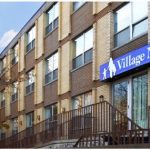Cambridge had a strong finish to 2020, and now the closing numbers for the first months of 2021 indicate that the momentum continues. In spite of the chaos produced by the COVID-19 pandemic and the hits taken by the economy, Cambridge closed 17 deals worth a total of $177 million. Cambridge Realty Capital President Jeffrey Davis noted that he is pleased with the numbers thus far in 2021 and grateful to the staff at Cambridge who has “continually rolled with the punches brought on by the pandemic and adapted to the changes with professionalism and dedication.”
Davis reported that the majority of closings from January to May of 2021 involved skilled nursing facilities and assisted living facilities. The closings took place primarily across three states: Illinois, Ohio, and California. The individual totals for each closing ranged from $3.1 million to Beaver Dam Nursing and Rehabilitation in Beaver Dam, Kentucky for a mixed-use skilled nursing home and Board & Care facility, to $22 million to The Views Marion based in Marion, Iowa, a mixed-use facility including independent and assisted living, rehabilitation, and memory care. “Despite a global pandemic, Cambridge has continued to do business as usual, even if the delivery had to happen a little bit differently over the last year and a half,” Davis commented. “We at Cambridge are pleased to be able to have provided support to an industry that was hit especially hard throughout the COVID-19 pandemic.”
While every industry and business was negatively impacted by the pandemic, the senior living sector and nursing homes, in particular, were affected in unique ways. Nursing homes were among the first institutions to experience COVID-19 outbreaks. The number of deaths linked to those outbreaks is sobering. It has been estimated that 8% of long-term care home residents have died of COVID-19 since the pandemic began. Narrowing down that statistic to nursing homes only, the number of resident deaths from COVID-19 is 1 in 10.
“Many facilities were already feeling stress from staff shortages, increasing costs, and changes to Medicare/Medicaid,” said Davis. “Suddenly these facilities faced the added challenge of dealing with a previously unknown virus and protecting facilities and residents from it, all the while experiencing shortages in PPE and ill staff members.”
Davis believes that the pandemic has fuelled new knowledge about dealing with facility-wide outbreaks of illness, COVID-19 or otherwise. “Operators are taking what they’ve learned from this experience and making changes to ensure that facilities are safer going forward.” Undoubtedly, operators will be including enhanced infection protection in future facility upgrades and policy updates because of this.
Cambridge Realty Capital experienced only minimal disruption throughout the pandemic. Staff members were able to continue doing their jobs from home, and any meetings that were required took place by phone or Internet. Although HUD loans typically took longer to process at the height of the pandemic, other types of loans were able to be completed in normal time frames. In fact, Cambridge closed an extraordinarily high number of IRR loans during the months of the pandemic, thanks to lowered interest rates intended to help stimulate the economy. Things are beginning to return to normal, at least to a degree, in many parts of the US. “We are anticipating that the remainder of 2021 will continue to be productive. With the light at the end of the pandemic tunnel now in reach, we look forward to the opportunity to deal with clients face-to-face again,” Davis concluded.




